Earth Begins with Ash, by Marisca Pichette
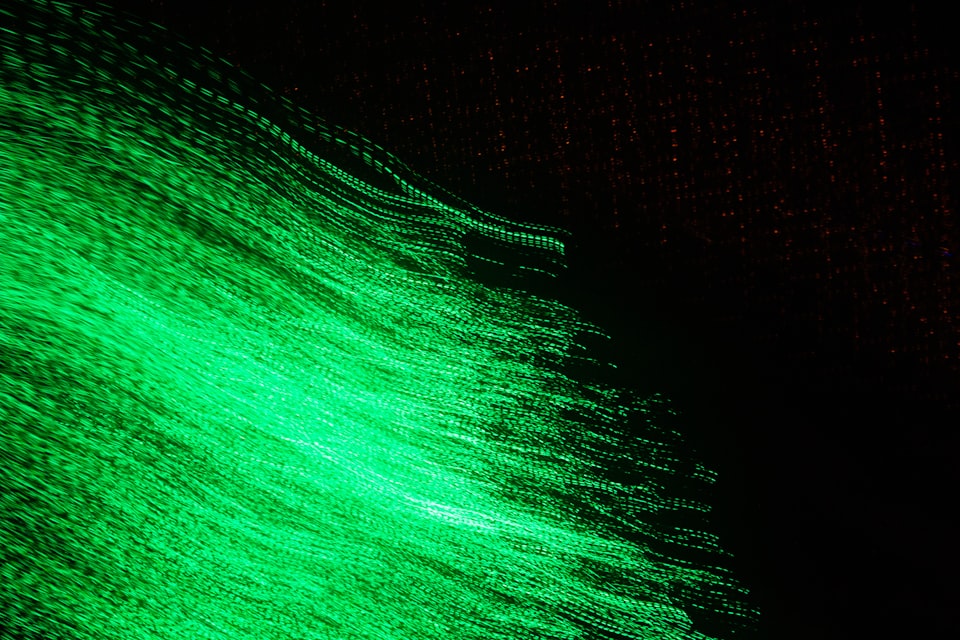
Content warnings
Cancer. Death.
15 minutes left.
Have you ever tasted time? I knew people who said they could smell it, or touch it—but that was at the end.
What I do know is this: we can all feel time as it passes over and through us. It could be waves, ripples, hills and valleys we don’t see until our skin feels their echoes, wrinkling in memory. Our bodies sway in sympathy with time. As it drifts from settlement to settlement, it leaves its markings. Aching joints and squinted eyes are a few telltale signs. And the tumours.
They took everyone eventually. You knew when they’d come for you, when your muscles bulged where they shouldn’t, hard to the touch under discoloured skin. Changing shapes, changing colours in spit, urine, pus. First it became harder to move. Then the lumps would show up, straining to escape like the animals we used to tend, back when there was grass and hope.
But somehow, I believed I was safe. I never went too near the pits, even on the darkest nights, when the stars were obscured, and the only light came from the green glow against the clouds.
That was time to us. Green light and swift decay, like the two-dimensional story arc of a Disney villain. Except in our story, the good guys didn’t win. No one did.
12 minutes left.
When I type this, there are ten shacks still standing, clustered like cancer cells around the lip of the largest radium pit. Reason tells me nothing will be left.
There’s no point in writing it down—but that’s human nature, isn’t it? We want to be immortal.
We think we can catch time.
My name is Amelia Dart, and I am about to die. Darkness is spreading, taking each star in turn, galloping towards the horizon.
But what does the present matter? It’s just a blip, a moth darting around the green light pouring out of the past. A moth covered in lumps, wings aflame.
10 minutes left.
We’re supposed to evacuate. Why? To watch it come? Maybe I’d rather die here, in the shack that holds all my memories. Somewhere buried in these crumbling walls are a handful of good ones.
I want to dig them out, take them with me.
You could say I lived a life surrounded by death, with my parents gone and my own end hanging over me each day, always knowing it would come, never knowing when. We all checked ourselves daily. Get up, brush teeth, feel for lumps. Lymph nodes, breasts, abdomen. I could do it in my sleep.
I’m doing it now, as if it matters what I find.
That was what it was like for all of us. Some people never grew up. Babies died more than the elderly. I don’t remember the last person in our settlement to make it past 40. Looking back, looking around—is this the worst that can happen?
Maybe this is better. Maybe there wasn’t anything left to save.
7 minutes left.
When I made it to my teenage years without illness, I began to believe that I was different, that I was safe. Youth and good health will do that to you—along with a certain amount of naïveté.
You could say that I was waiting for life. Death was inevitable, all consuming: in the radium pits and in the lumps that rose under your skin at night. Life, on the other hand, was something to be sought. And so, at 20 years old, I set out to find life.
I travelled, as much as you could. I visited nearby settlements, believing there might be better conditions somewhere. There weren’t. Everywhere, the pits lit up the night. Everywhere, the sun burned everything to dust.
When I returned at last to my settlement, people had died. People I’d known had left, and others had come, travelling up from the south to escape worse weather. At sunset, when the first of us emerged tentatively from our shacks, I saw her.
She was shorter than me, with dark skin and eyes the colour of evening. She looked healthy—as healthy as you could look.
“Hi, I’m Amelia.”
She looked at me, green light glowing on her cheek.
“Emily.”
I want to tell you everything about her, about us. But I’m running out of time, and the paper is so brittle I’m afraid it’ll crumble to pieces in the typewriter. I have to be gentle, and I have to be fast.
It’s getting darker.
Emily and I…we were fast friends, and fast something else. Our love grew every night, as we wound our way past the radium pits, taking long walks in green, cancerous light: a cruel substitute for a sun too harsh for our skin.
We watched the sun rise together some mornings, inside and safe from its burning rays. As the beams rose above the pits, we kissed and retreated to bed, spending the hot day tangled in each other’s arms.
When Emily and I lay together, we talked about the past. Not our past, but long past. To the days when the sun didn’t reject us, and confine our living to night. To the days when plants with soft leaves could grow, and cacti failed to survive the winters of New England.
I mourn that past—every second, every eon.
There won’t be any more eons, now. Seconds are all we have left.
5 minutes left.
One day, Emily discovered a lump in her breast.
Two weeks later, she was gone.
I could talk about her voice, about the times we had together, but there was so little. A month together is all the pits gave us.
After she was buried in the dust outside the settlement, her grave marked with a broken piece of concrete foundation, I rose each evening and probed the walls of my body, feeling for lumps, bruises, sores. I walked beside the pits and watched the sun rise, feeling it tingle on my face. Each morning, I went to bed, wondering if tomorrow, it would be me.
Each morning I found nothing, my relief got a little weaker. My disappointment grew a little stronger.
My desire to live died with Emily. Died and was buried one mile outside of the settlement, a fragment of a broken world covered in scorched lichen standing in for a headstone.
Despite my grief, I lived longer than many of my neighbours. I watched shacks collapse and fires creep across the horizon. A year passed. Another. Somehow, I made it to 25.
Daniel came to our settlement from Toronto. He had lived in a ruin with his family, until they died in a building collapse. He was thin, smaller than his age, and frightened. I took him into my shack, because most were unstable, too close to the pit. And I had the room.
Daniel didn’t dream like I used to. He wasn’t full of imagination like Emily. He was solemn, and private about his past. We talked only of the present; the future worried him too much. Years with him, and I admit that it started to worry me too.
Once again, I feared death.
Tumours grew in Daniel’s jaw when he was 28. I was 30. In our settlement, I was one of the oldest residents. The population shrank faster than it grew.
I had no children. I didn’t want them.
3 minutes left.
The alchemists of the Middle Ages spent their lives searching for the magical elixir of life. They slaved years, decades away trying in vain to stop time from passing. At the end, all they found was the inevitable face of death waiting for them.
And so they spent a lifetime looking, only to find what had been there all along. It just goes to show that while you’re looking for something to slow death, death finds you all the faster.
What did time taste like to the alchemists? They probably decided it tasted like failure.
They were wrong.
Time tastes like ash. Ash from burning grass and crumbling buildings. Ash falling like snow, but never melting. Ash drifting against every brick and stone still standing. When wood has disintegrated and metal melted into reflective puddles, carcasses curled up into heaps of desiccated bones—there is only ash.
Time looks like nothing. Darkness is the cloak of time. When I look out through the window at the blaring day—the last day—I see time laid out before me.
Time is a distant point of black, separated from me by miles and miles of blinding light. A thin buffer, shrinking faster than the human mind can comprehend.
Fire and radium. Ash and night.
The ash has been falling for days. It draws all the moisture from the air and parches what scraggly plants are still left around the shack. I want to say that ours is the last settlement to fall. But there isn’t an order. Perhaps everyone falls at once.
Perhaps we’re the first planet with life to succumb.
Then again, maybe we are the last. The last point of light to wink out, and join the legions of vibrant darkness.
2 minutes left.
Does death taste like blood? Pus? I used to think so, when I watched Daniel coughing and spitting in his last days. I used to think time was about lumps that shouldn’t be there. Time was about losing teeth, and your ability to walk. That was how you knew that time was running out.
And then the stars began to go away.
It started with a few—small dots that were there one night, and gone the next. We didn’t notice, at first.
Three mornings ago, I found a lump in my left breast—the same as Emily—and I felt death at last.
The next night, the last working radio in the settlement spoke to us.
“Our universe is old. It is no surprise that stars will grow old and die, as they have always done. But this is something else. All the vanishing stars are in the same quadrant of the sky. There is nothing we can do. We urge everyone to wrap up their affairs and prepare. The black hole will have us in two days.”
Two days to wrap up a life. Two days to put an entire planet’s affairs in order. Two days to roll up a solar system.
I had nothing left to wrap up.
1 minute left.
Time tastes like ash.
The radium caught fire in the searing heat of the day, and burned. That night was brighter than any of us had ever seen. Some people, drawn by curiosity, got too close to the pits, and died a few hours before their appointed time. Perhaps their deaths were less painful than what’s to come.
I was forced to leave my home when it caught from sparks falling from the sky. I type now in dust, maybe looking desperate and ridiculous in our final seconds. But none of us are looking at each other. We’re all looking up.
All wood buildings are burning. Metal too close to the pits melts into bubbling pools. We huddle together at sunset, watching the stars wink out above us.
Ashes. That is how we end our lives—in ashes. Ghosts are falling to earth around us, remembering the bodies of our once-loved ones. Or maybe they’re angels, tipped from their precarious perches in heaven.
Heaven is crumbling along with the rest of humanity, a shaky construction never meant to survive the intrusion of time.
Religion tastes like ash on my lips.
Thirty seconds left, and my shack caves in, leaving us alone in the burning night. I raise my face and see time, spread out in inky majesty above us. Everything joins the dark in the end. We watch the moon implode and vanish in a heartbeat.
One heartbeat more, and it’s our turn.
No time left.
I feel the ground shake and open up beneath my feet. Down into the welcoming gloom I fall, accepting the cool embrace of the dark. I watch the fires disappear above, snuffed out forever.
Last, I taste death. Death tastes like earth.
Author’s Note
Across the ages of human history, we are unified by the telling of stories. We look ahead at the future, and back at the past, and in the present: we wonder. In a moment, everything can change—but wonder remains. (Story originally published by Dark Recesses Press in October 2022.)
Marisca Pichette
Marisca Pichette is a queer author of speculative fiction, poetry, and nonfiction. She is based in Massachusetts, on Pocumtuck and Abenaki land. Her speculative poetry collection, Rivers in Your Skin, Sirens in Your Hair, is out now from Android Press.
- Website: www.mariscapichette.com
- Twitter: @MariscaPichette
- Instagram: @marisca_write
- Bluesky: @marisca
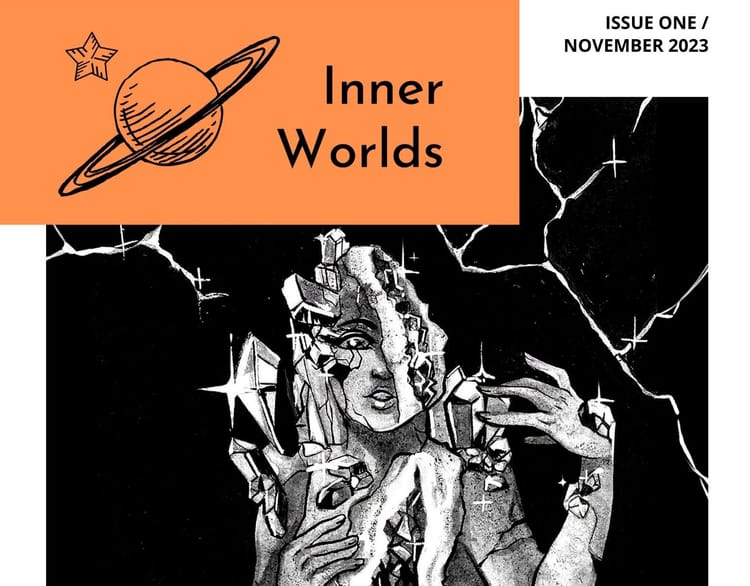
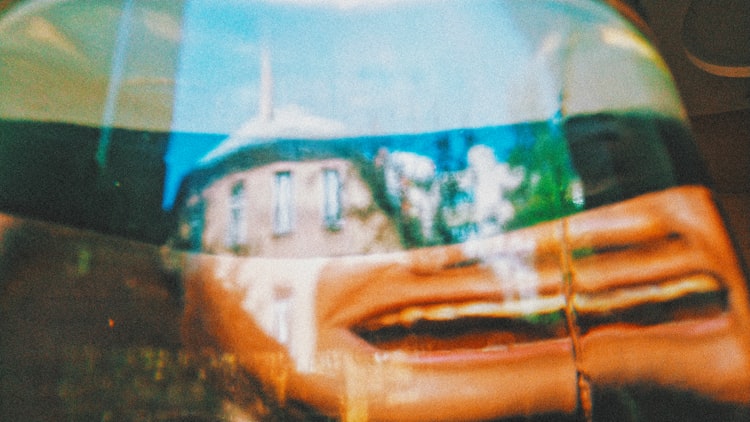
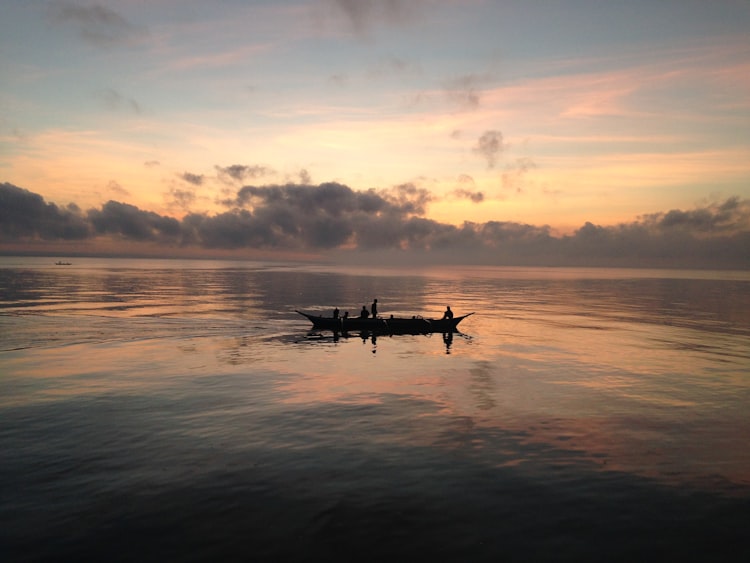
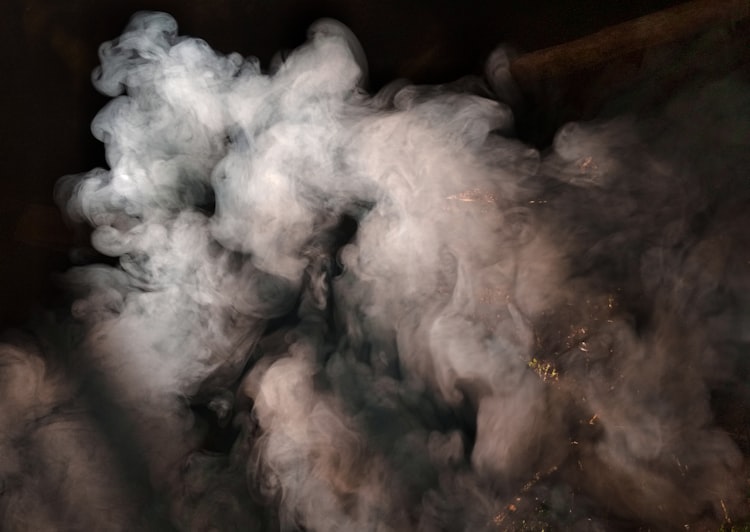
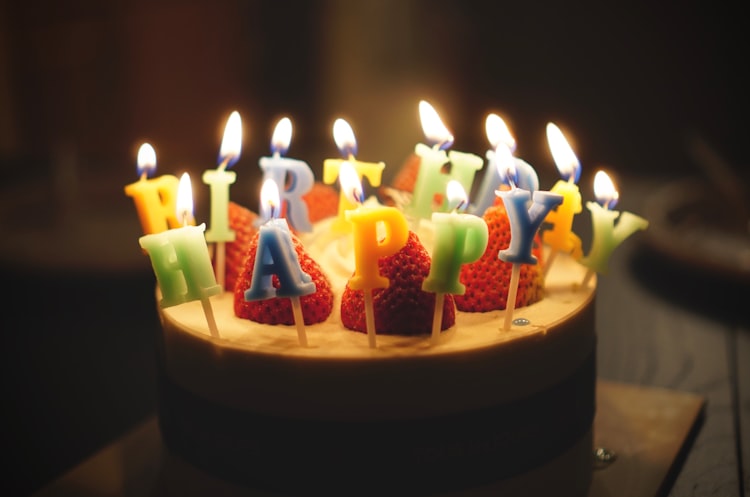
Member discussion